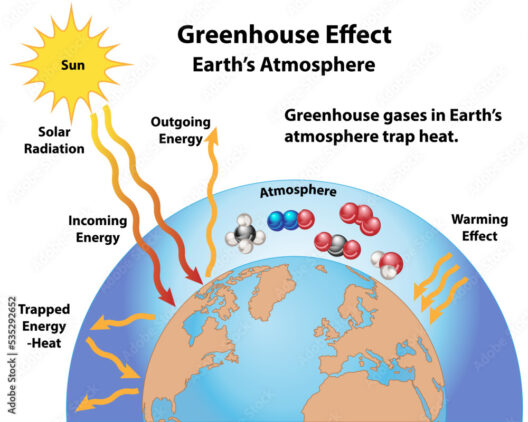Climate change is no longer a distant threat; it is a reality that demands our urgent action. The shifts in weather patterns, rising sea levels, and the increasing frequency of natural disasters signal that we stand on the precipice of a climate disaster. However, it isn’t too late for individuals and communities to play a significant role in mitigating this crisis. Here are some actionable steps you can take to contribute to a healthier planet and safeguard our future.
Understanding the dire state of our environment is a fundamental step toward driving change. Knowledge empowers you to make conscious choices that collectively have immense impact.
Before considering concrete actions, it’s essential to grasp how our daily decisions contribute to climate change. The choices we make—from the food we consume to the products we buy—have a ripple effect across the globe. Embracing a more sustainable lifestyle may seem daunting, but small, deliberate changes can accumulate into substantial progress.
The reality is that a paradigm shift in individual and societal behaviors is required. Deconstructing the myth that individual actions are insignificant is vital; collective effort claims considerable power. The following are several key areas where your actions can contribute to the planet’s wellbeing.
The foundation of climate action begins at home, focusing on energy consumption.
**1. Energy Efficiency: The Value of Conscious Consumption**
Making your home more energy-efficient is crucial in reducing carbon emissions. Consider investing in energy-efficient appliances and light bulbs. These products may have a higher upfront cost, but they save money in the long run due to reduced energy usage. Additionally, implementing simple practices such as turning off lights when not in use, unplugging devices, and utilizing natural light can further decrease energy consumption.
Moreover, you can enhance insulation in your home to conserve heat during winter and keep it cool in summer. This adjustment ensures less reliance on heating and cooling systems, which are significant contributors to greenhouse gas emissions. Not only do these modifications contribute to a more sustainable lifestyle, but they also yield substantial savings on utility bills.
**2. Renewable Energy: Harnessing Nature’s Power**
Transitioning to renewable energy sources is a crucial step toward combatting climate change. If possible, consider switching to a green energy provider or investing in solar panels for your home. Solar energy, wind energy, and geothermal systems are not only sustainable but are becoming more affordable and accessible for individuals and families. By adopting renewable energy, you reduce your carbon footprint and promote a broader transition toward sustainable energy systems.
Advocacy for community initiatives aimed at increasing renewable energy adoption is equally essential. Support local legislation and projects that promote clean energy infrastructure to facilitate a larger shift away from fossil fuels.
Transportation is another significant contributor to greenhouse gas emissions. Transitioning to greener modes of transport can make a substantial impact.
**3. Rethinking Transportation: A Path to Sustainable Mobility**
Reducing reliance on single-occupancy vehicles is pivotal in combating climate change. Whenever possible, walk, cycle, or utilize public transport. Not only is this eco-friendly, but it also promotes healthier lifestyles and decreased traffic congestion.
If driving is necessary, consider carpooling or using fuel-efficient vehicles. Electric cars are taking the market by storm, presenting a cleaner alternative to conventional vehicles. By embracing alternative transportation methods, you play a role in reducing air pollution and the depletion of natural resources.
While personal action is crucial, engaging with your community amplifies your impact. Collective initiatives foster a sense of responsibility and community spirit.
**4. Community Engagement: The Power of Collective Action**
Participating in local environmental organizations and initiatives can be remarkably empowering. Many communities host clean-up events, tree-planting activities, and educational workshops centered on sustainability. Your involvement not only nurtures local ecosystems but also raises awareness and mobilizes others toward climate action.
Additionally, advocating for sustainable practices within your community helps create a culture of environmental mindfulness. Support local farmers’ markets, community gardens, and businesses that prioritize eco-friendly products. Make consumer choices that reflect your commitment to sustainability and encourage fellow community members to do the same.
The food we eat is intricately linked to climate change, making it a pivotal area to address.
**5. Sustainable Eating: The Impact of Food Choices**
Your diet can dramatically influence your carbon footprint. Adopting a plant-based diet, even if on a part-time basis, can significantly reduce your environmental impact. Meat and dairy production are resource-intensive and contribute significantly to greenhouse gas emissions. By focusing on local and seasonal produce, you not only support local farmers but also reduce the carbon footprint associated with long-distance food transportation.
Minimizing food waste is equally vital. Proper meal planning, composting, and utilizing leftovers can significantly reduce the volume of waste sent to landfills, decreasing methane emissions in the process. Embrace a more mindful approach to consumption, making choices that support both personal health and the planet’s wellbeing.
Understanding the interconnectedness of climate issues is essential for fostering a holistic approach to environmental advocacy.
**6. Education and Awareness: Driving Global Change**
Informed individuals drive progress. Educate yourself about climate science and the specific challenges your community faces. By increasing your own knowledge, you can help disseminate information to others. Share articles, engage in conversations, and advocate for policies that address the climate crisis.
Your voice matters. Participate in local governance by advocating for policies that prioritize environmental protection. Encourage leaders to take decisive actions that align with sustainable goals, emphasizing the necessity for systemic change alongside individual choices.
In conclusion, avoiding a climate disaster requires concerted effort and mindful action from every individual. While the local impact may seem small, when multiplied by millions, it becomes a powerful force for good. From improving energy efficiency to engaging in community initiatives, each step brings us closer to safeguarding our planet for future generations. The stakes are high, but so is the potential for change. Through dedicated actions, we can collectively cultivate a sustainable future.





